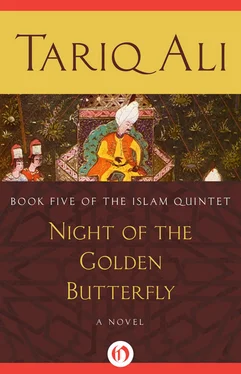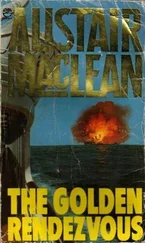The play began. All went well till the ghost scene. The actor playing the ghost was a young professor of English, slightly neurotic and very arrogant. He had studied at Edinburgh University and spoke Punjabi with a slight Scottish accent. He had never acted before, but had lobbied forcefully to be part of the play and finally the harassed director had given him the small role of the ghost. When his turn came to speak he was paralyzed with stage fright and forgot his lines. The excessively short senior student playing Hamlet began to panic. The third time he repeated ‘ Hai, mayray pio da bhooth’ ( ‘ Oh, my father’s ghost’) without eliciting any response from the ghost, an irritated voice from the audience shouted a loud prompt:
‘Pidke, bacha apni ma di chooth!’ (Runt, save your mother’s cunt!)
To say the effect was electric would be an understatement. The actors collapsed before the audience. Hamlet was a giggling wreck. The ghost passed out with shame. The stage lights were turned off and on for at least ten minutes. The sound of laughter drowned all else: as one wave subsided, another rose. The stage management realized the play was over for the night and announced that the critics were welcome on the next day.
Everyone was looking for the Punjabi Freud whose bon mot had made the evening more memorable by wrecking it. The owner of the voice was in his thirties, bespectacled, dressed in salwar/kurta and chewing paan and had a thick crop of Brylcreemed black hair. He appeared to be on his own. Some members of the audience began to shake his hand and others were pointing appreciatively in his direction, but he seemed determined to get out of the theatre as fast as he could. Zahid and I grabbed him as he was looking for his bicycle in the shed.
‘Disappear, boys. I wish I hadn’t spoken.’
We invited him to join us the next day for drinks in Respected’s juice bar.
‘What sort of juice?’
‘The most delicious fruit juice in the city.’
He laughed without committing himself. We never expected him to show, but in the meantime news of his witticism had travelled far and wide, from the cafés to the kebab stalls of the city. At college the next day it seemed the only subject of conversation. Students asked each other, ‘Were you there?’ Zahid and I were much in demand as witnesses, and every time we repeated Plato’s words there were gales of admiring laughter. Later the same day, when we repaired to the Coffee House, not far from the college, the poets and critics gathered there had also been discussing the cancelled play and there was an overwhelming curiosity as to the author of the prompt. Why had this young man not been heard of before? Such a natural talent deserved his own special table in the café. Literary veterans racked their brains to think of a precedent as startling as his remarkable intervention. I wondered whether the same discussion was taking place in Cheney’s Lunch Home, a five-minute walk away, where aspiring poets mingled with highbrow critics and modernist blank verse was an obsession. At the Coffee House we discussed the poetry of Louis Aragon and Ilya Ehrenburg’s novels. The Lunch Home preferred Baudelaire and Gide and regarded Shakespeare as an antique bore, but even they could not avoid a discussion of the Punjabi Hamlet .
It was in these cafés that I first began to understand the scale of the trauma that had afflicted Lahore during the Partition of 1947 and transformed this cosmopolitan city into a monocultural metropolis. Names of Sikh and Hindu writers and journalists were recalled with sadness and those present who had witnessed the horrors of what is now referred to as ethnic cleansing would shudder as they remembered those times. Few dwelt on 1947 for long. It was just over a decade ago and the wounds were only too visible. There were more pleasant memories. A club, now sadly defunct, called Metro Fatherland, where in the heady years of the early Fifties young Muslim men and women met, ordered drinks and danced. On his way to this paradise, a writer would suddenly glimpse the veil parting on a burqa-clad woman’s face as she bought a piece of fine silk in Anarkali, and describe the vision as celestial light illuminating the Ka’aba. That still happens.
Plato made us wait a whole week before he emerged from his den. We looked carefully for any trace of triumphalism on his face. There was none. Our table was restricted to iconoclasts: a mix of students and young lecturers, the occasional older professor and a few graduates who were now, mainly, young civil servants with much spare time each day. Hangers-on were not tolerated and anyone suspected of being there to ingratiate himself with the teachers was angrily dismissed with a few choice epithets. We greeted Plato warmly. He became a regular fixture, arriving usually at lunchtime. The owner of the juice bar, curly-haired Respected Tufail, whose computer-like brain never forgot what we owed him, refused to charge Plato for a whole month. Respected — everyone called him that ever since he had once complained that students were far too rude and did not appreciate his skills. This was because the common terms of address, affectionately intended, were pimp, catamite, torn-arse, etc., and Tufail had become tired of hearing students half his age shouting, ‘Pimp! A large mixed pomegranate and orange juice.’ He refused to serve any student who hailed him in abusive language. Overnight we gave him his new name. Many customers had no idea what his real one was. Respected was a great wit and raconteur and often sat at our table to join in the banter. Even Babuji, the elderly proprietor of the adjacent café, which plied us with tea, samosas and shami kebabs all day long, would come and sit with us when Plato arrived.
Zahid was more conscientious than I was and often left to attend lectures, but I spent most of my time there, at our table in the corner underneath the big pipal tree, with its eight places permanently reserved for us. Respected and Babuji would never permit anyone else to sit there even if none of us had arrived. It was around this table that we began, slowly, to discover Plato’s past. It took months before he became relaxed enough to share his life story with us.
His name really was Plato. He was born in a village not far from Ludhiana, in East Punjab, now part of India. His precocity as a child and constant questioning had greatly irritated his father, a local schoolteacher, who probably had no answer to some of the boy’s queries. Aflatun, the local version of the philosopher’s name, corrupted from Arabic, was often used pejoratively to describe people who talked too much or repeatedly asked awkward questions or were just too argumentative. And so the three-year-old Mohammed became Mohammed Aflatun, and was registered under that name at the local madrassa and later at the high school in Ludhiana, where a few teachers had actually read Plato. This was a very long time ago. The nickname was meant to ridicule him, but as he grew, Plato took it as a compliment and later immersed himself in the translated editions of the Greek classics. His obsession with Pythagoras led to a lifelong love affair with mathematics, the subject he now taught at an ultra-snobbish Lahore school where entry was based exclusively on class, with preference given to landed families.
‘You teach there? Do you dress any differently?’
‘Why should I? Don’t they need me more than I need them? Once you live to please others, you live in fear of their displeasure, and fear makes one stupid.’
Later we discovered from a colleague of his, who loathed him, that had Plato accepted the offer of a stipend from Cambridge to study higher mathematics he would have prospered in that discipline. The offer was made after he sent a well-known Cambridge don some comments on his work, scribbled on the back of an old sheet of answers to an exam he had marked at school. But Plato disliked specialization, and as he told us on one occasion, ‘I did not want to drown in a pool of mathematics for the rest of my life.’ The prospect was unappealing. But why teach at a school? Why not at the college? Offers had been made there, too, and he had turned them down. School was less demanding, he maintained. Furthermore, he had no university degrees at all, never mind a PhD, and, besides, he could educate some of those private school boys in other disciplines, including that of life, with which they were mostly unacquainted.
Читать дальше












